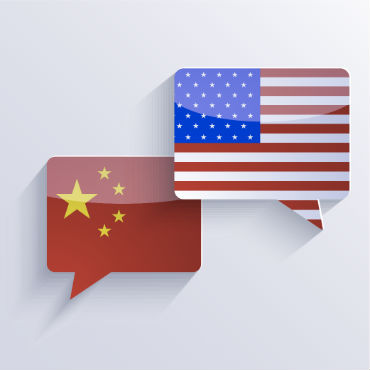Tech startups with Chinese characteristics
Steve Kelman travels to China, and finds a different twist on incubators and innovation.

Accompanying a group of Harvard students on a spring break trip to China (what ever happened to beaches in Ft. Lauderdale?), I had a chance to visit the headquarters of Alibaba in Hangzhou, a "medium"-sized city of 2 million about 90 minutes by high-speed rail from Shanghai. I watched employees bicycling, Google-like, from one building on the campus to another, and checked out the cavernous 24-hour Starbucks on the ground floor.
Alibaba is China's most-famous startup since that nation opened up in the 1970s. It was founded in 1999 by Jack Ma, a former English teacher, initially as a site to allow Chinese companies to post product offerings online for foreign customers. Significantly, Alibaba's early funding did not come from China's conservative financial sector at all, where banks specialize in providing loans to state-owned enterprises, but from abroad -- Goldman Sachs and Japan's Softbank. (A China-based banker at Goldman Sachs was persuaded about the company's prospects, but cut a very tough deal, giving Goldman control of 50 percent of the company and anti-dilution rights so its ownership wouldn't go down. The firm ended up selling its stake in 2004, however, and missed out on most of the company's rise.)
Fast forward to the present. After Alibaba, we visited Dream Village, an incubator that has gotten up and running, on the former site of a tea warehouse, in the year since Chinese premier Li Keqiang made a plea for young people to do startups. I blogged about this topic a year ago, and lo and behold, China now has incubators.
But, to adapt a phrase used in other contexts in China, this is an incubator with Chinese characteristics -- most notably, with more of a top-down feel than one would experience in the U.S. This became apparent when the slide show presentation on Dream Village led off with pictures of Chinese President Xi Jinping and the startup-enthusiast-in-chief, Premier Li Keqiang. Most of the money for the incubator comes from the government, which also provides some common services such as accounting help.
Our presenter noted that Premier Li had even suggested that students consider dropping out of school, or at least taking time off, to start up businesses. The last time the leadership suggested this was during the Cultural Revolution in the 1960s, when the result was Red Guards rather than private businesses. (Somebody I spoke with at another point during the trip expressed concern that all this youthful energy in many situations would better be put to studies.)
A number of things have changed since Jack Ma started Alibaba in terms of making funding for startups available. There now is a significant venture capital industry, both domestic and foreign, operating in China. There has grown up though a small number of privately owned banks, including one called Baosheng Bank that we also visited on this trip, that lend to small businesses -- though I suspect seldom to startups. There is also a somewhat iffy, but undeniably large, peer-to-peer lending industry.
Dream Village itself organizes pitch sessions where funders come to the site to hear from those at the incubator. I have never myself visited an incubator, but it seemed somewhat different from what I imagine U.S. examples to be like. Many of the kids were arrayed in neat rows, seated at chairs that made them look a bit like they were taking a final exam, though there was another section with small groups of four or so seated around a table talking. An American student participant in the trip, who has experienced incubators, confirmed that the neat rows of young people were odd and also ventured a reaction that people seemed to be working at a more relaxed pace than he would see at a U.S. incubator.





